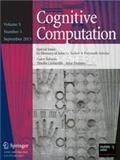- 投稿方式--官网投稿
-
期刊属性
-
- 中科分区:3区
- OA期刊:混合
-
- 综述期刊:否
- TOP期刊:否
-
- 期均国文:13
- 环比增速:162.50%
-
期刊信息
- 研究方向:计算机科学-COMPUTER SCIENCE, ARTIFICIAL INTELLIGENCE计算机:人工智能;NEUROSCIENCES神经科学
- 国际刊号:ISSN 1866-9956;EISSN 1866-9964
-
- 期刊语言:英语
- 出版地区:美国
- 投稿网址:https://www.editorialmanager.com/cogn
- 电子邮箱:
- 期刊官网:https://www.springer.com/journal/12559
- 作者指南:
- 出版商网址:http://www.springeronline.com
- 出版地址:ONE NEW YORK PLAZA, SUITE 4600 , NEW YORK, United States, NY, 10004
- 期刊简介:Cognitive Computation《认知计算》(双月刊). Cognitive Computation is an international, peer-reviewed, interdisciplinary journal that publishes cutting-edge articles describing original basic and applied work involving biologically-inspired computational accounts of all aspects of natural and artificial cognitive systems. It provides a new platform for the dissemination of research, current practices and future trends in the emerging discipline of cognitive computation that bridges the gap between life sciences, social sciences, engineering, physical and mathematical sciences, and humanities.
-
万维提示
-
1、投稿方式:在线投稿。
2、期刊网址:https://www.springer.com/journal/12559
3、投稿网址:https://www.editorialmanager.com/cogn
4、官网邮箱:hussain.doctor@gmail.com(主编)
(更多相关咨询邮箱请查看期刊官网信息)
5、期刊刊期:双月刊,逢单月出版。
2022年1月20日星期四
投稿须知【官网信息】
Cognitive Computation
Submission guidelines
Instructions for Authors
Editorial policy
Cognitive Computation is a high-quality quarterly journal which will publish cutting-edge articles describing original basic and applied work involving biologically-inspired computational accounts of all aspects of natural and artificial cognitive systems. Its main purpose is to establish a forum for bringing different scientific communities together to discuss key issues and challenges in the emerging area of cognitive computation and to promote an interdisciplinary understanding of the diverse topics, including those related to perception, action, attention, learning and memory, decision making, language processing, communication, reasoning, problem solving, and consciousness aspects of cognition.
Areas of particular interest include theoretical, computational, experimental and integrative studies in cognitive systems, including (but not limited to):
artificial intelligence, neural networks, cognitive neuromorphic engineering and other hardware implementations, cognitive robotics, autonomous cognitive systems, neuroscience nanotechnology, self-organizing, swarm and immune systems, complex systems and control theory, and computational cognitive neuroscience, as well as submissions focusing on the development of latest research into practical applications.
Cognitive Computation Audience:
Computational Neuroscientists, Computer Scientists, Cognitive Scientists, Software engineers, Electronic Engineers, Neuromorphic engineers, Systems designers, Information managers, Knowledge Engineers, Psychologists, Linguists, Artificial Intelligence Specialists, Researchers, and professionals in such fields as finance, manufacturing, defense, medicine, and the sciences - both 'pure' and 'applied'.
Types of Papers:
The journal is committed to high standards of presentation. Please contact the Editor to discuss the suitability of topics.
Cognitive Computation will consider:
Regular full-length Papers and Short Papers or Letters describing original research; In-depth Review articles focusing on important new developments; Book reviews, Comments/Discussions on Papers; Opinion and controversies; Letters to the editor; Special Issue proposals; Announcements for upcoming related Events/Conferences and Books.
Full-length or Regular papers can be up to 10,000 words in length and should be aimed at presenting novel results important for the cognitive computation research community. Regular Articles are expected to constitute the core of Cognitive Computation publications.
Review (full-length) articles should focus on a topic of interest to the cognitive computation community. Authors will be asked to take particular care in writing the review in an intelligible way, so that readers outside this field can understand the main ideas and their importance. These review papers should normally be invited by the Editor, but they can also be solicited by Authors. In this case, the Author(s) should contact the Editor, and send an outline of the review stressing why it is important and timely to review this topic, and why it is relevant to this journal. Review papers will be processed and reviewed like regular articles, except that the referees will be explicitly told that it is an invited review paper.
Short Papers or Letters are aimed at important findings that need to be published promptly. The length and the number of figures are limited to 3000 words (text, including references), plus 3 figures (which can be multi-panel figures) and a maximum of one table. For these papers, the time to publication will be minimized (this fast track will be treated in priority). The format remains the same as for regular articles, except that we ask the authors to be very concise in writing their introduction and discussion, and reviewers will be asked to be prompt in their review.
All other correspondence items should be no more than 1000 words in length, with 1 figure or table.
……
更多详情:
https://www.springer.com/journal/12559/submission-guidelines
- Contemporary Physics《当代物理学》
- Discrete Analysis《离散分析》
- Chemical Industry & Chemical Engineering Quarterly《化学工业与化学工程
- ARP Rheumatology《ARP风湿病学》(原:Acta Reumatologica Portuguesa)
- ZFW-Advances in Economic Geography《ZFW:经济地理学进展》(原:Zeitschrif
- Yale Journal of Biology and Medicine《耶鲁生物学与医学杂志》
- Turkish Journal of Zoology《土耳其动物学杂志》
- Turkish Journal of Veterinary & Animal Sciences《土耳其兽医与动物科学杂志
- The Turkish Journal of Pediatrics《土耳其儿科杂志》
- Turkish Journal of Medical Sciences《土耳其医学杂志》
- Reproductive Sciences《生殖科学》
- Rejuvenation Research《抗衰老研究》
- Die Radiologie《放射学》(原:Der Radiologe)
- Quarterly Reviews of Biophysics《生物物理学评论季刊》
- Psychiatry and Clinical Neurosciences《精神病学与临床神经科学》
- Preventive Veterinary Medicine《预防兽医学》
- Physics of Particles and Nuclei《粒子核物理学》
- Numerical Linear Algebra with Applications《数值线性代数及其应用》
- Nanoscale and Microscale Thermophysical Engineering《微/纳尺度热物理
- Matrix Biology《基质生物学》

